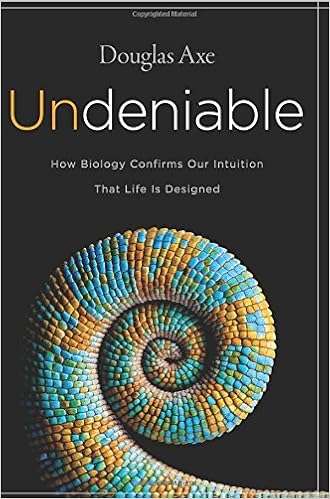 From Doug Axe’s Undeniable:
From Doug Axe’s Undeniable:
Atheists have a pronounced leaning toward scientism, which is the belief that science is the only reliable source of truth. It’s entirely understandable, then, that belief in God might look to them like wishful thinking – as though people of faith have let their hearts overpower their heads. . . . We fully acknowledge that emotion can get in the way of clear thinking, but since we see this as a very general condition of humanity, we would never offer it as a particular weakness of atheism, the way so many atheists offer it as a particular weakness of theism. (P. 7)
Axe is director of the Biologic Institute.
Note: Pot. Kettle. Scientism is the chief cause of belief in unfalsifiable notions such as the multiverse, impossible ones such as a random origin of life, strangeones such as that information is a physical entity …
Follow UD News at Twitter!
Amazon Best Sellers Rank: #2,306 in Books (See Top 100 in Books)
- #1 in Books > Christian Books & Bibles > Theology > Creationism
- #1 in Books > Science & Math > Evolution > Organic
- #1 in Books > Science & Math > Biological Sciences > Biology > Developmental Biology